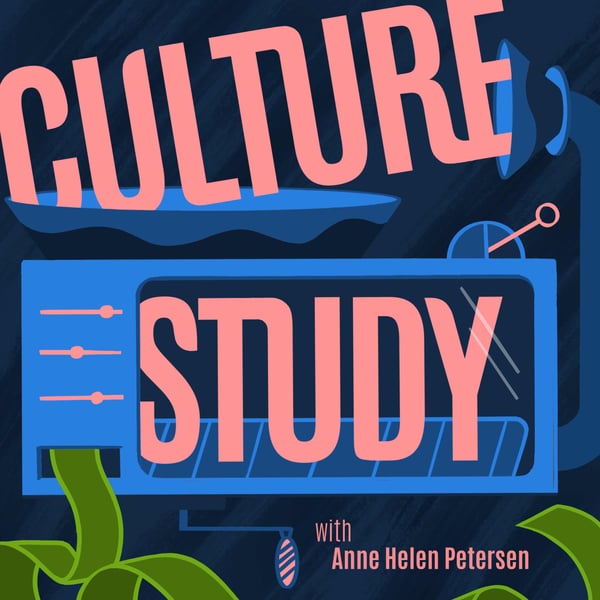How Romance Writers Rewrite Publishing’s Rules
Culture Study Podcast
Anne Helen Petersen
4.6 • 637 Ratings
🗓️ 17 July 2024
⏱️ 50 minutes
🧾️ Download transcript
Summary
How are romance writers — and the recent romance boom — chipping away at the norms of Big Publishing? Does self-publishing lead to more diverse authors and characters? How has Amazon both expanded and limited the market? That’s what we’re grappling with in today’s episode.
Back in June, romance novelist Nisha Sharma broke down all the tropes and trends of contemporary romance. Next month, we’ll have the owners of a romance bookstore explaining the the big (and complicated) business of romance-only bookselling. And today, we have Christine Larson, author of Love in the Time of Self-Publishing, walking us through the labor dynamics of romance publishing. If you like thinking about different ways of organizing labor, you’ll find all of this fascinating — and if you’re a romance fan, it’ll make you think a lot about which books end up in front of you and why. You’re gonna love it.Join the ranks of paid subscribers and get bonus content, access to the discussion threads, ad-free episodes, and the knowledge that you're supporting an indie pod trying to make its way in the world. If you're already a subscriber-- thank you! Join us in the discussion thread for this episode! Got a question or idea for a future episode? Let us know here.
To hear more, visit culturestudypod.substack.com
Transcript
Click on a timestamp to play from that location
| 0:00.0 | There's so much that we can learn by looking at both romance novels and the people who write them. |
| 0:07.0 | The community of romance writers is a microcosm of American society. |
| 0:13.4 | It's full of controversy. |
| 0:16.1 | It's full of people who want the best for the world. |
| 0:20.7 | It's also a place where imagination can help us envision |
| 0:26.5 | the world that we want. Yeah, like it's a place where utopia is imaginable. That's always what I |
| 0:34.0 | have loved about thinking about the purposes of romance and of entertainment more |
| 0:40.8 | broadly, but like the idea that, oh, there could be a world in which women's pleasure is |
| 0:46.7 | taken seriously. Exactly. |
| 0:57.8 | This is the Culture Study podcast, and I'm Anne Helen Peterson. |
| 1:04.5 | And I'm Christine Larson, professor at University of Colorado Boulder, an author of Love in the Time of Self-Publishing, How Romance Writers Change the Rules of Publishing and Success. |
| 1:09.9 | As you know, each week we take a piece of the culture that surrounds us and we really look into it from as many angles as possible. |
| 1:17.2 | And we're trying to figure out what it says about the world we live in. |
| 1:19.7 | And today is part two of a conversation about romance novels. |
| 1:23.9 | Back in June, we talked to romance novelist Nisha Sharma about tropes, about diversity and representation on the page, about whether you should be concerned when reading romance novels makes you question your love life, so many things. |
| 1:36.5 | Part three of this series will be out next month, and it'll be all about the business of selling romance. |
| 1:42.9 | But today, we're looking specifically at the readers |
| 1:45.6 | and writers and the publishing industry itself. So I am so excited to talk to you, Chris, about the work |
| 1:51.7 | that you have done analyzing this industry, the larger romance community, the ethos of care and of work |
| 1:57.5 | that is all around romance writing. And then also because you are a cultural scholar |
| 2:02.6 | as well, we can think about the purposes of romance and why romance is the way that it is |
| 2:06.9 | and some of these larger questions that our readers and listeners have posed for us. So let's start |
... |
Please login to see the full transcript.
Disclaimer: The podcast and artwork embedded on this page are from Anne Helen Petersen, and are the property of its owner and not affiliated with or endorsed by Tapesearch.
Generated transcripts are the property of Anne Helen Petersen and are distributed freely under the Fair Use doctrine. Transcripts generated by Tapesearch are not guaranteed to be accurate.
Copyright © Tapesearch 2025.

